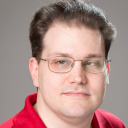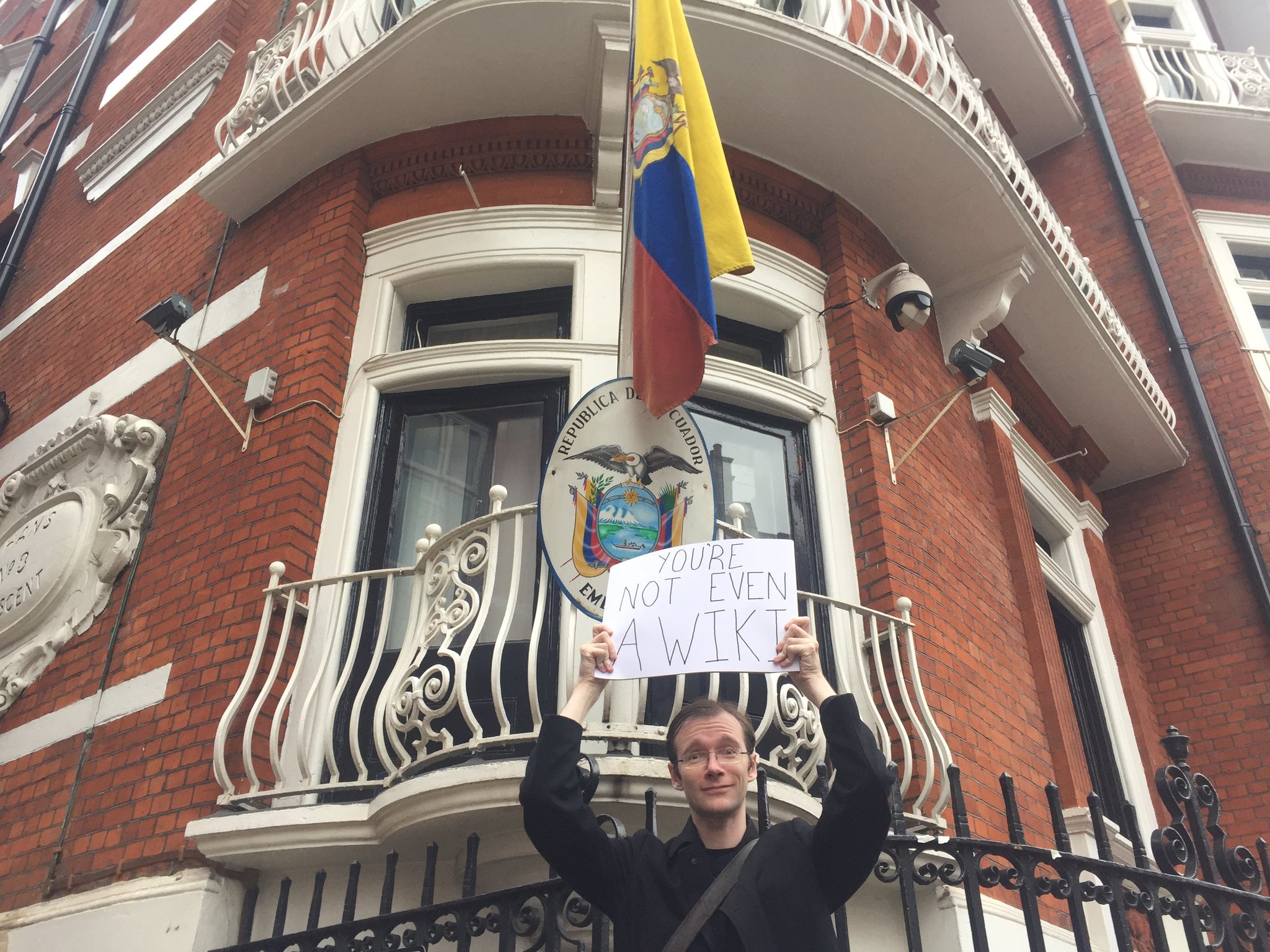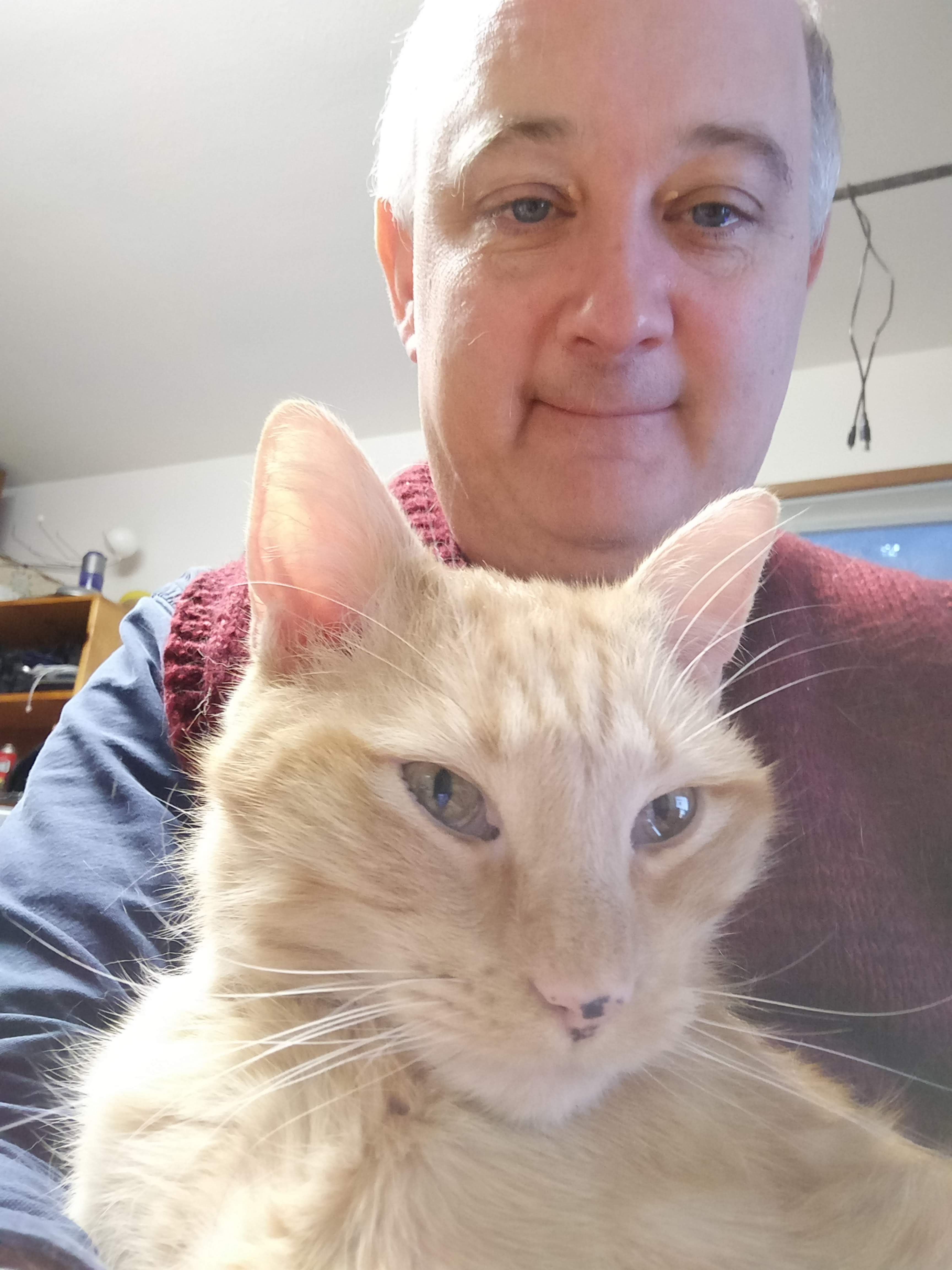![[RSS]](/static/img/feed-icon-14x14.2168a573d0d4.png) Conservancy Blog
Conservancy Blog
Displaying posts
by Deb Nicholson
![]()
Josh Triplett: Free Software Optimist
by on December 18, 2018
This is part of our ongoing series on generous matching donors. With roots in the Debian community and a contributor to a number of free software projects, Josh is a passionate software freedom advocate. Working at a large company involved in free software has brought Josh a deep understanding if the issues concerning the corporate use of open source. Josh and several other outstanding individuals are joining Private Internet Access and a big anonymous donor in offering $90K in matching funds to Conservancy for our continued work to provide both support for important free software and a clear voice in favor of community-driven licensing and governance practices.

Deb: What's the most exciting thing you've seen recently in free software?
The Rust project. It's the first language with a credible ability to replace C anywhere you can use C, while providing all the features of a modern programming language and many pioneering innovations not yet seen elsewhere. And it's the most welcoming and energizing community I've ever been part of; it's an absolute joy to work with Rust and help it grow. Rust gives me so much hope for the future of computing.
Deb: Do you have a favorite Conservancy project and/or one that is indispensable to your own work?
Conservancy is home to so many incredible projects that it's hard to choose. I love Reproducible Builds and Outreachy, and the ways in which they continue to change the world. Reproducible Builds represents one of those ideas where the goal seems obvious and yet the execution requires an incredible and pervasive effort across the industry, and the people working on it have done an amazing job. Outreachy brings so many people into computing, provides wonderful opportunities, and in the process helps show projects how to be more inclusive. And QEMU and Git are both incredibly useful for me.
Deb: What do you hope to see Conservancy accomplish in the next five years?
Josh: I'd encourage many more projects to make Conservancy their home. The best time to join a foundation is before you need one, and Conservancy is the best possible home for almost any Free Software project. Apart from that, I'd love to see Conservancy succeed in its ongoing GPL compliance efforts, as well as continuing its many behind-the-scenes efforts to improve industry practices around FOSS. And Conservancy serves as the shining example of principles and good stewardship among FOSS foundations. I've seen what Conservancy can do at their current size; I'd love to see what Conservancy could do with more resources.
Deb: Anything else you'd like to add?
I'm thrilled to be able to sponsor Conservancy with this donation matching campaign. Please consider becoming a Conservancy supporter.
Check if your employer offers donation matching as well, which can make your donation twice as effective. And if you can, use a bit of your social capital within your employer to get them to support the home of so many projects you and they depend on regularly.
And if you have a Free Software project with more than one maintainer, consider joining Conservancy.
Matthew Garrett: Software Freedom Activist
by on December 13, 2018
This is part of our ongoing series on generous matching donors. Matthew Garrett is a security-focused developer and software freedom activist who received a Free Software Award for his work on Secure Boot, UEFI and the linux kernel in 2014. If you are not worried about the security of practically all your devices, it is only because you haven't seen Matthew speak about low-level vulnerabilities. Matthew and several other outstanding individuals are joining Private Internet Access and a big anonymous donor in offering $90K in matching funds to Conservancy for our continued work to provide both support for important free software and a clear voice in favor of community-driven licensing and governance practices.

Deb: What's the most worrying thing you've seen recently in free software?
Matthew: I'm concerned about the perception that it's impossible for development of free software to be financially self supporting, and that the only way to handle this is to develop new licenses that forbid certain use cases. There's a real problem where individual developers are left with little reward for developing code that giant commercial enterprises depend on, but we're largely seeing this push come from venture capital firms who just want a larger return on their investment. The free software community needs to come up with an answer to this that doesn't involve trying to extort money out of companies in order for them to be able to legally exercise the freedoms that free software should guarantee, but I don't know what that answer is yet.
Deb: What do you think non-profits are uniquely positioned to accomplish in free software?
Matthew: Non-profits are part of the solution to the above. Free software needs to be supported in order to prosper - and that means that someone needs to be able to provide resources to free software projects without being motivated by whether or not they can profit from the exercise. Conservancy is an example of an organisation that provides resources to and reduces friction for a number of free software projects, and it's hard to imagine a for-profit entity being able to achieve the same.
Deb: Is there a free software project that you wish existed but (as far as you know) no one has started working on?
Matthew: I'd love to see a free software TV stack. The majority of modern TVs run Linux, but there's no realistic way to replace most of the vendor provided code. The ability to provide a full featured, user controlled experience that improved upon the functionality provided by the manufacturer would be an amazing way to increase awareness of the power of free software, while also reducing the amount of personal information that users are currently giving up (frequently without even knowing what they're giving up!)
Deb: What do you hope to see Conservancy accomplish in the next five years?
Matthew: I'd love to see more projects under the Conservancy umbrella and for Conservancy to be a strong representative voice that can push back against the profit-oriented arguments against free software that are becoming louder.
Please take a minute to help Conservancy continue to spread the good news about free software and meet this exciting year-end match, today!
Matthew Garrett "You're not even a wiki" is available under a CC BY-SA 4.0 license, from Wikipedia by tef.
Copyleft Conf Venue Announced!
by on December 12, 2018
We are excited to announce the venue we'll be using for Copyleft Conf. The one day event will take place in downtown Brussels at DigitYser, Boulevard d’Anvers 40, 1000 Bruxelles. The venue is a bit northeast of Grande Place. Participants can choose to walk, take the train to the Yser stop or use one of Brussels' many buses.
The first ever Copyleft Conf is happening in Brussels on February 4th, aka the Monday after FOSDEM. This event will provide a friendly and safe place for discussion of all aspects of copyleft -- developers, strategists, enforcement organizations, scholars and critics are all welcome.
The event starts at 9:30am and will finish at 6pm.We'll be providing coffee throughout the day and lunch for those who pre-register for the event. We will accommodate vegetarians and vegans and people with other dietary restrictions should get in touch with us. Registration will open in about a week, which should come pretty close to the date when we hope to have a preliminary schedule to share with you.
If you have questions about Copyleft Conf, including questions about attending, volunteering with or sponsoring, please email copyleftconf@sfconservancy.org
Keith Packard: Inspired & Inspiring
by on December 4, 2018
This is part of our ongoing series to highlight our generous matching donors. Keith Packard has been working in free software for more than thirty years and is a long-time contributor to Debian, X Windows and more recently the Linux graphics driver stack. Keith and several other outstanding individuals are joining Private Internet Access and a big anonymous donor in offering a total of $90K in matching funds to Conservancy for our continued work to provide both a "back-office" for free software and a clear voice in favor of community-driven licensing and governance practices. You can join him and donate today!
Deb: What's the best recent trend you've seen in free software?
Keith: I've been excited to see how rapidly the free software communities I participate in have adopted strong codes of conduct. I feel like the tone of communication has become kinder and accepting. We've still got a long ways to go, but it feels like we've at least accepted that this change is necessary and good.

Deb: What do you think non-profits are uniquely positioned to accomplish in free software?
Keith: I'm afraid I'll have to be very US-specific with my answer as the US tax code colors how people within non-profit organizations work, even non profit organizations with an international scope.
The free software non-profit organizations that I am involved in have operated under the 501(c)3 rules for public charities. These rules are designed for groups focused on charitable, scientific, educational and certain other purposes and require a strong commitment to the public good. For instance, X.org was able to operate under 501(c)3 rules only after demonstrating (to the US government) a many-year history of providing direct educational assistance to new and existing software developers through our conferences and other outreach programs.
The goals of free software include allowing all people to control their computing environment and allowing people to teach, learn and share all of the software they use. An organization supporting free software for the public good is the best way I know of to defend and promote the essential software freedoms.
Deb: Is there a free software project that you wish existed but (as far as you know) no one has started working on?
Keith: One of my little quirks is that, even in 2018, I run my network infrastructure out of my own home (mostly email, git and web pages). I feel this offers me a better legal framework should someone want to seize any of my data, plus it keeps me from being subject to any corporate policies I might not like.
My web site is published using ikiwiki, which works pretty well but is both overly complicated and missing some key features. I like the general plan -- write markdown, commit to git and publish the resulting web site. I don't like the markdown it uses; it's old and written in perl. I don't like how publication works -- you push source code to a git repository on the web server where a git hook runs to compile that source code into your web site.
I recently packaged cmark-gfm for debian; that's the common mark to HTML conversion program that github uses for all of the markdown content that people publish there. It's fast and self-contained, but it doesn't generate whole web pages, just HTML fragments.
What I'm looking for is a self-contained web site publication program that takes a collection of templates and a collection of common mark files and generates a whole web site from that on my laptop. Once the web site is complete and tested, I should be able to copy it to the web server unchanged where it can be served directly.
Essentially, I'm interested in free software to help make running a simple web presence easier, more secure, and still look good so that people aren't stuck using commercial services where users are the product.
Deb: What do you hope to see Conservancy accomplish in the next five years?
Keith: Of course, I'm hopeful that Conservancy will continue to grow and spread the good news about free software. I expect to see many more member projects join. I'd love to see parallel organizations form supporting freedom in other areas of the arts and sciences -- everything from computer hardware to clothing design. I think those communities can learn much from what Conservancy has accomplished, and I hope we can learn from them as well.
Deb: Anything else you'd like to add?
Keith: I'm so pleased to have been asked by Molly to participate in this fundraising drive; her vision of what we can do as a community is inspiring to all of us.
Please take a minute to help Conservancy continue to spread the good news about free software and meet this exciting year-end match, today!The picture of Keith with his cat is a selfie and is available under the CC BY-SA 4.0 license.
